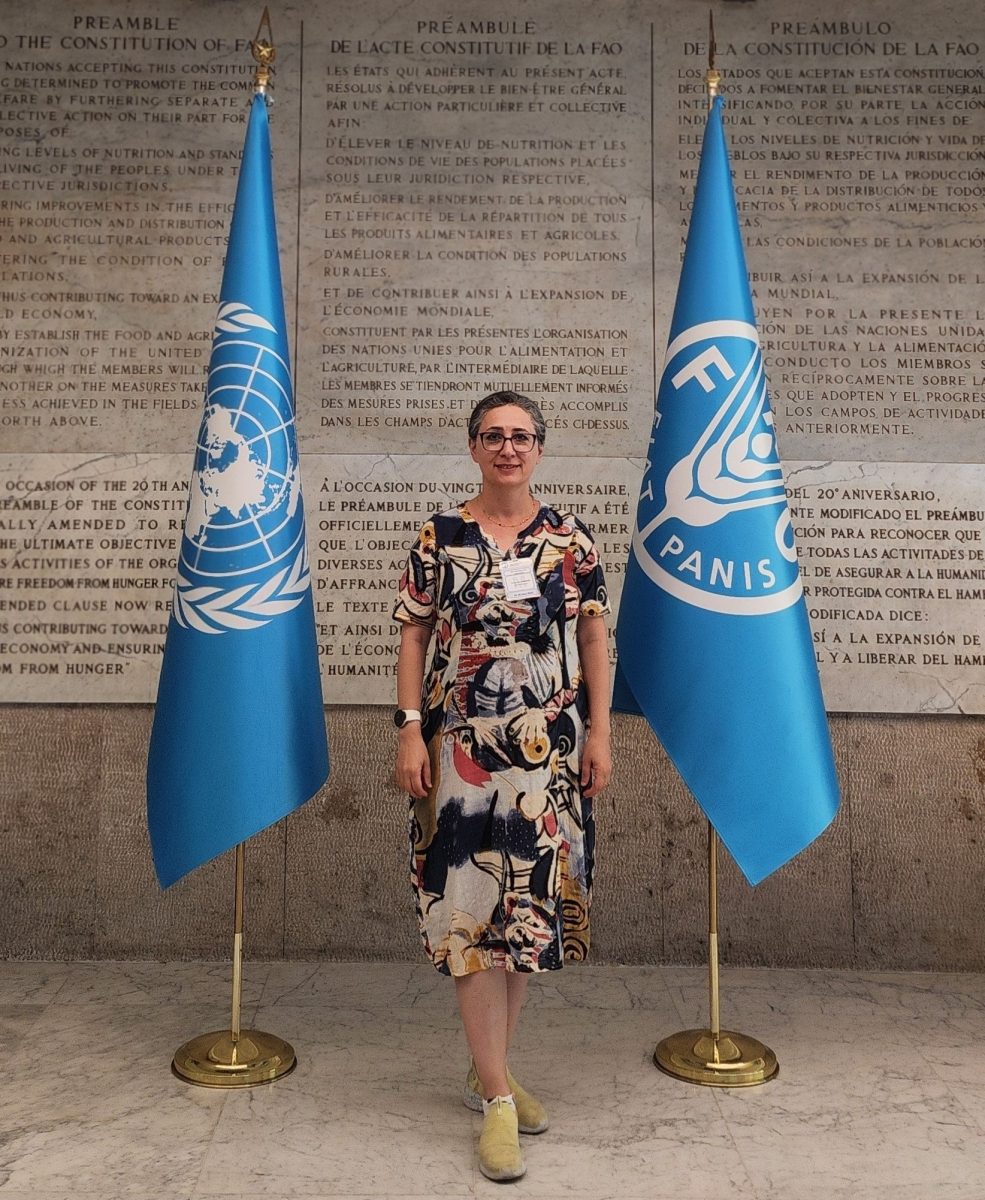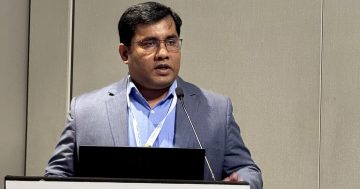
Professor Shokoofeh Shamsi was invited to the FAO headquarters in Rome in May. Photo: Supplied.
A Charles Sturt University academic has been selected to contribute to a United Nations (UN) expert panel on global food safety.
Professor of Veterinary Parasitology Shakoofeh Shamsi, a food saftey expert, was invited to the UN Food and Agriculture Organisation’s (FAO) headquarters in Rome in May, and will be one of eight experts reviewing and updating advice on foodborne parasites.
Foodborne parasites affect around 30 per cent of the population worldwide, and there are more than five million cases of food poisoning in Australia each year. Professor Shamsi highlighted children, the elderly, pregnant women and people with immune system issues as the most vulnerable population.
Despite this, she said parasites did not receive the same attention as other biological and chemical hazards.
“It’s really concerning, and shows that maybe we are a little bit complacent about it,” she said.
“Food safety is everyone’s business.
“It’s not only, you know, just the government having to set policies or the way businesses sell the products.”
Foodborne parasites can be transmitted through contaminated fresh or processed foods, as well as raw, undercooked, or poorly processed meat, offal, wild game, and fish.
She advised consumers to take basic steps, such as washing their hands before eating or handling food, making sure food was prepared properly and washing raw and undercooked products such as salads and vegetables thoroughly to minimise the risk of getting food poisoning.
“From producers all the way until the food comes to our table, all the different people or entities that are involved in this, have to follow the guidelines and do their role properly,” she said.
“Like the packaging, educating the staff with the policies and everything else must be in place to make sure that this food is safe.”
The panel’s findings will inform updates to the Codex Alimentarius (or “Food Code”), an internationally recognised food standards framework set up by the World Health Organisation (WHO) and FAO in 1963.
“Food safety is very broad,” Professor Shamsi said. “It could be chemical, physical, biological hazards and even biological itself.
“Each of these have their own subcategories; with biological we have, for example, bacterias, viruses and parasites.
“The eight scientists are not supposed to represent any country or any university or any entity at all.
“So scientists who are invited go through the massive number of research produced over the last few years, and look at all the evidences.
“It’s all evidence based and science based, and that’s why we don’t represent any country or anything, because it has to be 100 per cent bias free.”








